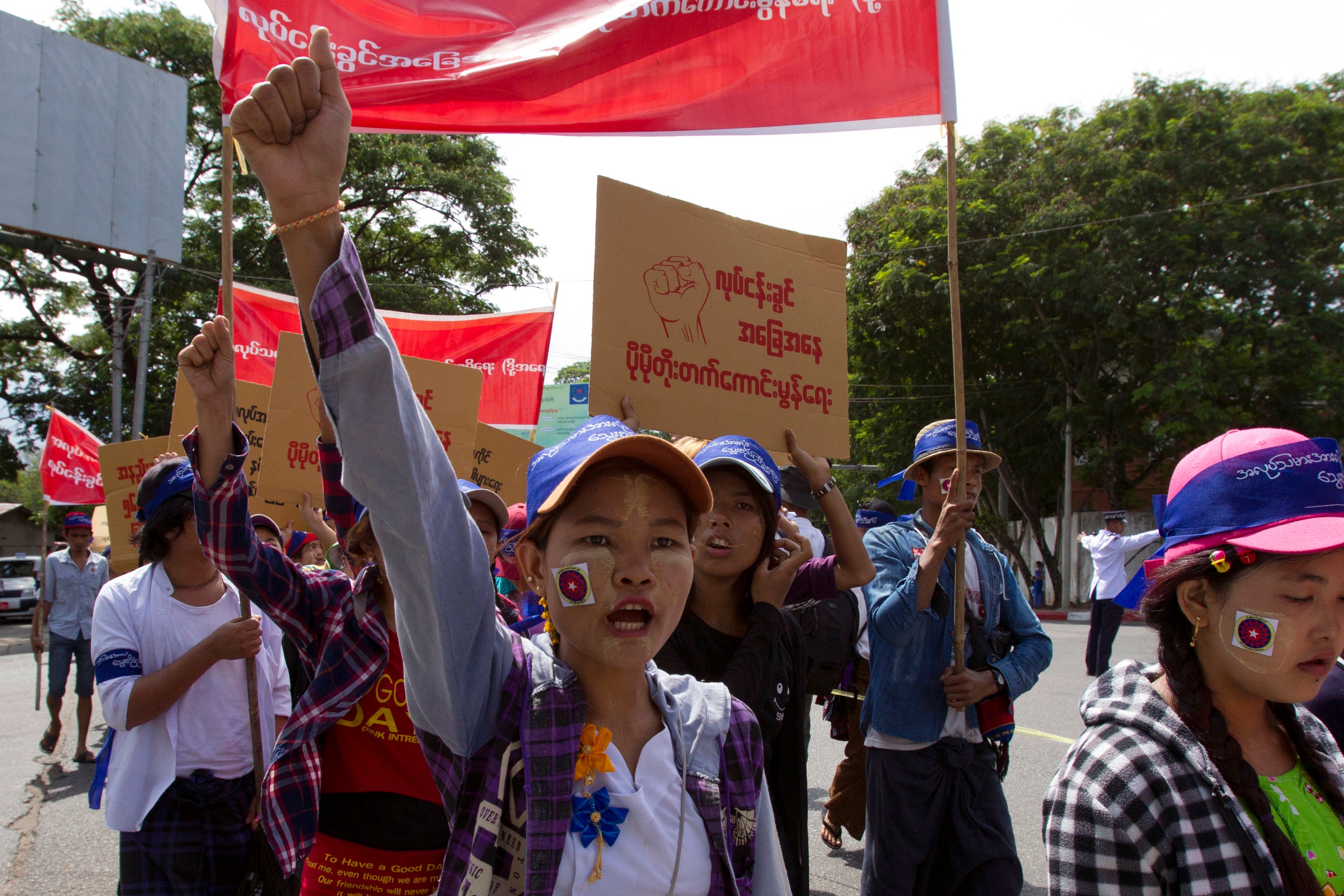Adidas, H&M and Zara told to make ‘responsible exit’ from Myanmar
According to a new report there has been a spate in violemce and abuse against the garment workers
Big fashion brands — from Zara to Adidas — have been urged to "responsibly exit" for allegedly failing to protect the garment workers in Myanmar's supply chain from "threats of widespread rights abuse and gender-based violence" under the military rule.
A report published by the non-profit The Business and Human Rights Resource Centre revealed a "significant increase" in labour and human rights abuses of garment workers across the south Asian country since the junta wrested power from Aung San Suu Kyi's government in a coup on 1 February 2021.
Myanmar’s garment sector employs nearly 700,000 people.
There has been a “widespread and systemic abuse in international brands’ supply chains”, including wage theft, sexual harassment, abusive work rates and mandatory unpaid overtime, the report stated.
Over 100 cases of labour and human rights violations against at least 60,800 garment workers were documented from February last year by the research centre and its partners. The workers were employed at 70 factories that supply to at least 32 global fashion brands and retailers, including Zara, Primark, Adidas, Uniqlo, and Hennes & Mauritz.
According to the report, at least seven workers were allegedly killed by the military while 15 workers were arbitrarily arrested or detained in an effort to silence critics.
Women garment workers who make up 90 per cent of the industry’s workforce and earn less than $2 a day have been facing "increasing levels of gender-based violence and harassment" in the last 18 months under the regime.
Critics have accused the junta of ruling Myanmar with an iron fist, implementing a bloody crackdown and imprisoning dissenters. Four pro-democracy activists, including a former lawmaker from ousted leader Ms Suu Kyi’s party, were executed, in the country’s first use of capital punishment in more than three decades.
Activist groups have claimed that more than 2,100 people have been killed by the security forces since the coup, though this number has been rejected by the junta.

Four pro-democracy activists, including a former lawmaker from ousted leader Ms Suu Kyi’s party, were executed, in the country’s first use of capital punishment in more than three decades.
"The cases we have documented are just the tip of the iceberg given the severe restrictions on civic freedoms and reporting under military rule, and the heightened risk of reprisals for workers who speak out against abuse," said Alysha Khambay, head of labour rights at the Business & Human Rights Resource Centre.
"Brands must wake up to the harsh reality that decent working conditions no longer exist in Myanmar and continuing business as usual is no longer helping to ‘protect jobs and workers’, as has been repeatedly claimed."
Factories have taken advantage of the military rule to roll back labour rights and protection unions after union leaders were forced into hiding, she said.
While brands such as H&M, Inditex and Primark initially suspended operations following the coup, their operations have since resumed in the country. Union calls for brands to withdraw from Myanmar have largely been ignored despite a deteriorating situation for labour and human rights, the report stated.
Women factory workers were reportedly subjected to “physical, sexual and verbal abuse and harassment if they did not meet increased production targets” at Nadia Pacific Apparel.
The women were allegedly being punched in the chest and head, kicked, yelled at and referred to as “dogs”.
At Hesheng Myanmar, which produces leather goods for luxury fashion brands Moschino and GUESS, a worker was allegedly raped on her way home from work in March 2022 after being forced to work late. The survivor was reportedly denied transportation back home.
“In response to the Resource Centre, Moschino said it expects its suppliers to respect human rights and comply with international human rights and labour standards,” the report said. “We gave the 32 buyers linked to the factories the opportunity to respond to the alleged abuse of workers in their supply chains. Two-thirds (22) responded,” it added.
Ms Khambay added that if brands cannot guarantee the protection of workers’ rights then a “responsible exit from the country is the only way forward”.
“They must use their leverage to show the illegal dictatorship that this abuse will not be tolerated, or risk being implicated in the continued suffering of workers.”
Join our commenting forum
Join thought-provoking conversations, follow other Independent readers and see their replies
Comments
Bookmark popover
Removed from bookmarks